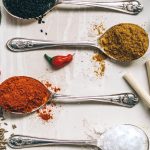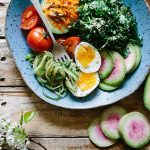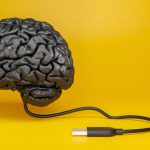There is lots of information out there about what healthy eating is. Some of it might be helpful but sometimes the information you read could be biased, not well-researched or manipulated. Here is the raw truth about five myths related to what we eat.
1. Drinking for Your Health
A glass of wine or a pint a day keeps the doctor away? Although some research indicates that social drinking can actually be good for relaxing, alcohol is actually a poison. However, as Paracelsus, the father of toxicology would say,
Sola dosis facit venenum OR the dose makes the poison.
In other words, as we’ve all been told, drink in moderation. The greatest benefits from wine don’t come from the alcohol per se but from a potent antioxidant called resveratrol, commonly found in grapes. Simply taking capsules of resveratrol doesn’t work either. Exceeding antioxidant consumption has no real benefit; the body absorbs all it needs and eliminates the surplus. Same rules apply to beer: the possible benefits you can obtain from it don’t rely on the alcohol it contains but on the yeast which provides B-complex vitamins and minerals like chromium.
Consuming alcoholic drinks in excess cancels out any possible benefits. The key is simple: a healthy, balanced diet, a relaxed lifestyle and low or moderate alcohol consumption.
2. Eggs Give You High Cholesterol
There are many speculations about the relationship between eggs and high cholesterol. Nutritionally speaking, eggs are a very dense food, containing rich minerals and vitamins like vitamin A, and low fat proteins — the yolk also happens to contain cholesterol.
That’s no reason to cut them out entirely, though! Research indicates that high cholesterol is not directly related to the consumption of eggs. 1 large egg has around 186 mg of cholesterol and the recommended daily amount for healthy people is 300 mg, or 200mg if you’re considered at risk, so make a great high-protein snack or nutritious meal.
Doctors recommend a high level of HDL (also known as the good cholesterol) which can actually be increased with moderate to high intensity physical activity. On the other hand, LDL (or the bad cholesterol) can be decreased with a healthy diet. So instead of completely avoiding eggs, the way in which you cook your food and your whole diet is what actually makes a greater impact.
3. Meat and Milk Cause Cancer?
The research on this topic is not sufficiently clear at the time of writing. It is worth pointing out, however, that it’s unlikely that one particular food will give you cancer. Your diet as a whole, and how you cook your food, make a greater impact on any risk for this type of disease. In the case of meat and milk, you can consume them in moderation and when doing so opt for lean cuts or skim milk.
4. Eating Less Makes You Skinny
When you eat less than what your body requires or if you skip meals your metabolism slows down. Your body is designed to be efficient in providing you with the energy you need to go about your day, so when your body no longer has fuel, it preserves what it does have and makes the best use of what it has left.
One way to preserve this energy is through glycogen, which lasts around 12 hours and provides you with energy while you sleep right up until breakfast. Therefore, if you regularly skip breakfast, your body will do its best to store as much glycogen as it can so it can go longer without eating, resulting in a lower metabolism. When you skip a meal it is more likely that you’ll have cravings and will overeat, compensating for, or maybe even eating more than what you would have eaten otherwise.
5. Look for ‘Light’ on the Label
You would think light products would have fewer calories, but that’s not always the case. In reality, food products might advertise one health benefit, but often add other not-so-healthy ingredients to avoid losing texture or flavour. So if a food product says it’s free of something, life fat for example, that doesn’t mean it’s completely devoid of that ingredient. In reality you could be consuming up to 0.5 grams of fat for every serving. So, if a serving is 1 biscuit and you ate the whole package of 6 cookies, than you could be consuming 3g of fat even though they call themselves fat-free. Same can happen with other ingredients such as sugar or salt. Other similar messages or labels that we have to watch out for are when your food claims to be a low, reduced or light version.
| Classification | Calories |
| Fat-Free | Less than 0.5 g of fat per serving |
| Low-Fat | 3 g of fat or less per serving |
| Reduced | 25% less fat than the regular version |
| Light | 1/3 less calories or 50% less fat |
Furthermore, consuming light drinks, which contain artificial sweetener or sugar substitutes, could actually increase your appetite and lead to weight gain. What happens is that your taste buds detect something sweet going into your body and sends this message to your brain. By the time your light drink is digested and no energy is extracted from it, your brain continues waiting for the advertised energy sending you messages to find more food.
Your Body, Your Food
Don’t be blinded by the tricky advertisement and labeling on your food. Use your common sense and be moderate when consuming those foods that are not so great for your body. At the end of the day it is better to enjoy what you eat, consume small portions of foods that are high in calories and leave those fatty or sugary foods for extraordinary occasions. Have you fallen trap to any of these sayings? What other myths about healthy eating have you seen floating about? Let us know and post it below.













